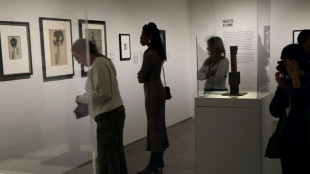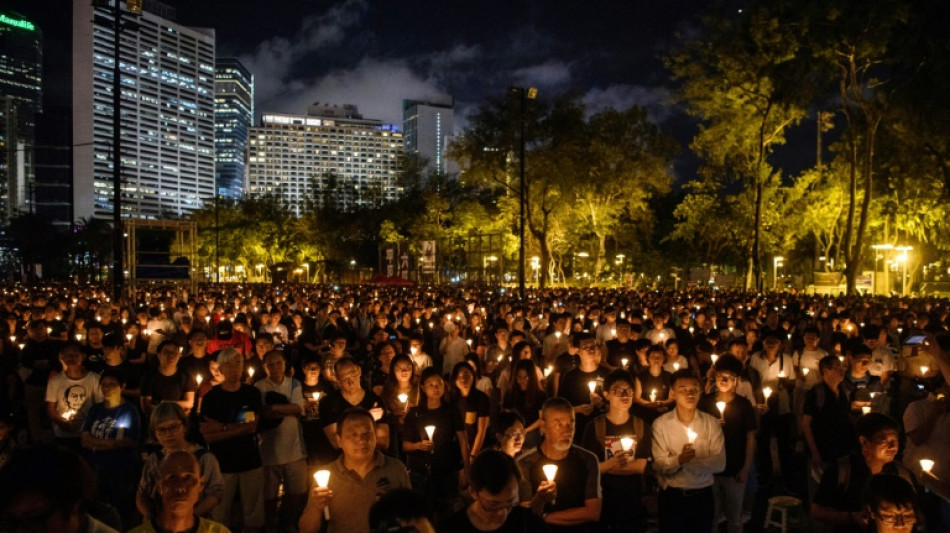
-
 Merz ramps up pressure on EU over electric car shift
Merz ramps up pressure on EU over electric car shift
-
Athletics chief Coe admits 'heat challenges' at Tokyo worlds
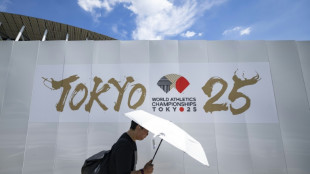
-
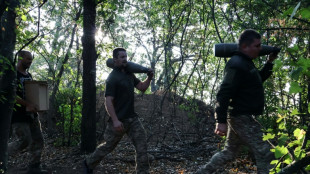 At least 20 killed in Russian strike on east Ukraine: Zelensky
At least 20 killed in Russian strike on east Ukraine: Zelensky
-
'World watches our slaughter': Gazans flee Israeli assault on urban hub
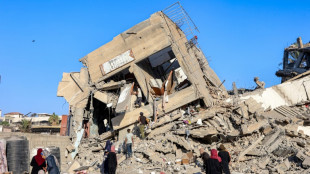
-
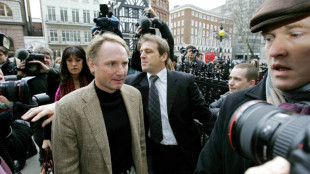 'Da Vinci Code' author Dan Brown releases latest thriller
'Da Vinci Code' author Dan Brown releases latest thriller
-
Nepal PM resigns after deadly protests sparked by social media ban
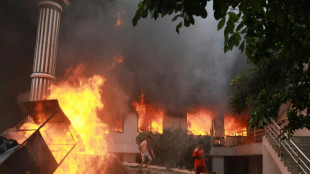
-
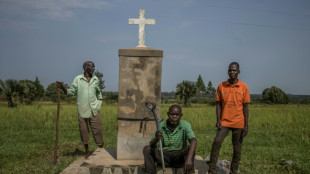 Kony crimes still felt in Uganda, 20 years on, ICC hears
Kony crimes still felt in Uganda, 20 years on, ICC hears
-
Nottingham Forest swoop for Postecoglou after sacking Nuno

-
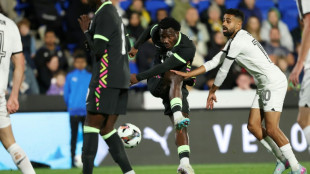 Australia beat New Zealand again to win 'Soccer Ashes'
Australia beat New Zealand again to win 'Soccer Ashes'
-
Hundreds of pro-Palestinian demonstrators rally outside London arms show
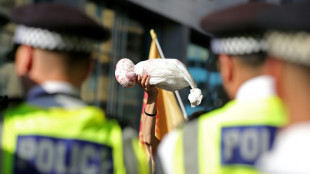
-
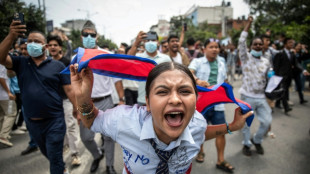 Nepal prime minister resigns after deadly protests
Nepal prime minister resigns after deadly protests
-
Japan ruling party to pick new leader on October 4
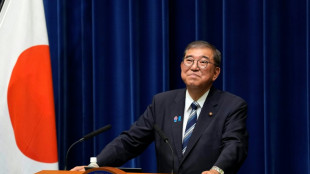
-
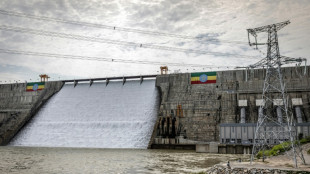 Ethiopia inaugurates Africa's biggest dam
Ethiopia inaugurates Africa's biggest dam
-
Miners Anglo American, Teck plan new copper giant
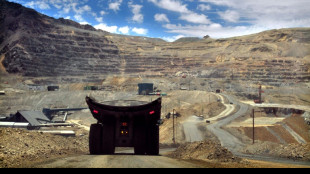
-
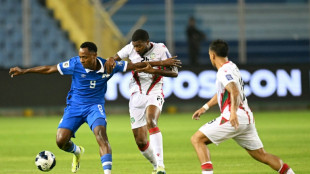 Suriname stun El Salvador, allege racist chants in WC qualifying
Suriname stun El Salvador, allege racist chants in WC qualifying
-
Macron scrambles to find new French PM as Bayrou set to resign
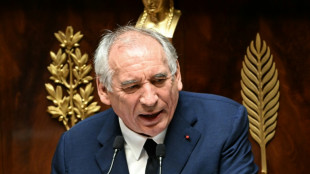
-
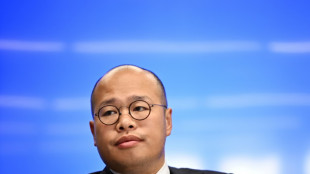 Death of Hong Kong's Lai would strengthen democracy message, son says
Death of Hong Kong's Lai would strengthen democracy message, son says
-
Korean women target US military in landmark forced prostitution lawsuit
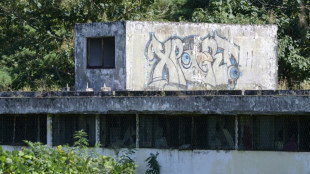
-
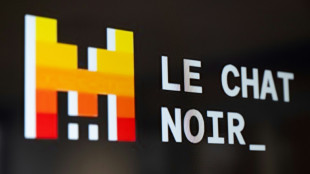 Mistral cements AI lead in Europe with cash infusion
Mistral cements AI lead in Europe with cash infusion
-
Israel says to act with 'great force' in Gaza City
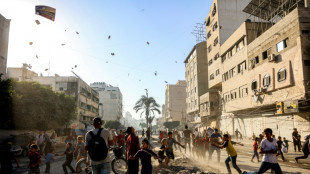
-
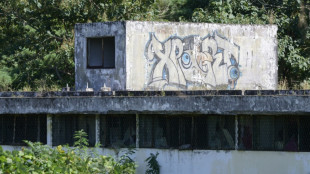 South Korean women sue US military in landmark prostitution lawsuit
South Korean women sue US military in landmark prostitution lawsuit
-
40 years of 'Mario' games that have grown up with fans
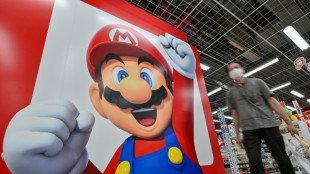
-
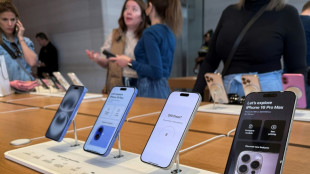 AI and iPhones likely stars of Apple event
AI and iPhones likely stars of Apple event
-
Thaksin termination? Prison term latest chapter in political odyssey
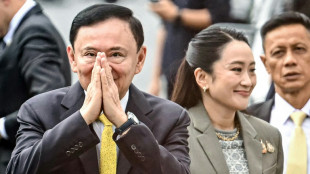
-
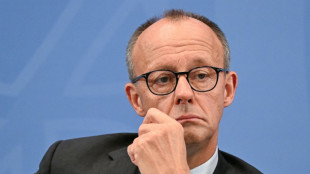 Merz to open Munich motor show as engine row threatens to combust
Merz to open Munich motor show as engine row threatens to combust
-
Quiet Tebogo's legs to 'do the talking' in Lyles 200m worlds battle
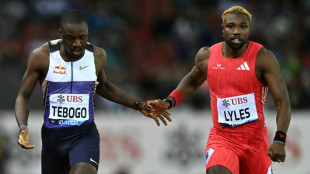
-
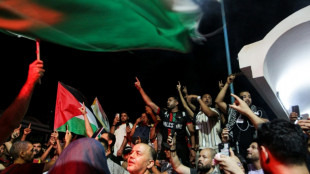 Gaza aid flotilla says hit by drone, Tunisia says none detected
Gaza aid flotilla says hit by drone, Tunisia says none detected
-
Thai top court orders ex-PM Thaksin jailed for one year
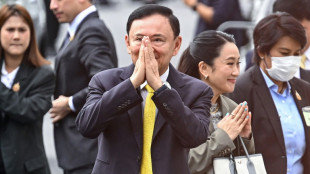
-
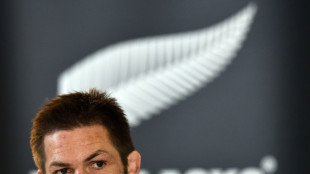 All Blacks great McCaw inspires squad ahead of Springboks rematch
All Blacks great McCaw inspires squad ahead of Springboks rematch
-
Maduro decrees Christmas in October for Venezuela, again
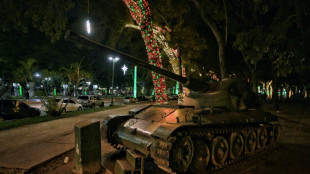
-
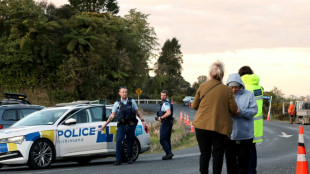 New Zealand police detail slain fugitive father's life on the run
New Zealand police detail slain fugitive father's life on the run
-
McCarthy sparks late rally as Vikings edge Bears in NFL opener

-
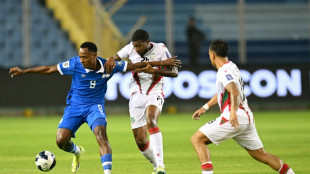 Suriname stuns El Salvador in 2026 World Cup qualifying
Suriname stuns El Salvador in 2026 World Cup qualifying
-
London arms show opens under Israel cloud
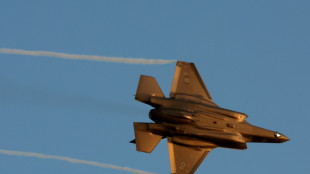
-
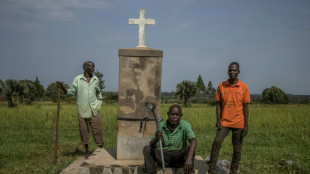 ICC hears charges against Ugandan warlord Kony
ICC hears charges against Ugandan warlord Kony
-
Most Asian markets rise on US rate hopes, Tokyo hits record
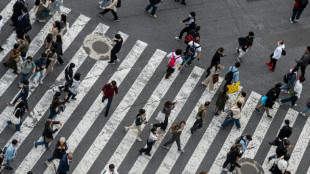
-
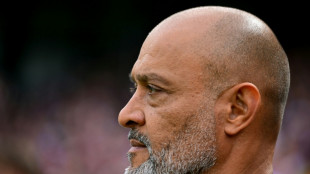 Nottingham Forest sack head coach Nuno after rift with owner
Nottingham Forest sack head coach Nuno after rift with owner
-
Major social media sites back online in Nepal after deadly protests
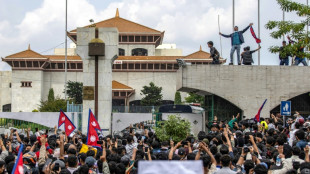
-
 From rocky start to Oscar hopeful: Dwayne Johnson hits Toronto
From rocky start to Oscar hopeful: Dwayne Johnson hits Toronto
-
Murdoch family settles dispute over media empire succession
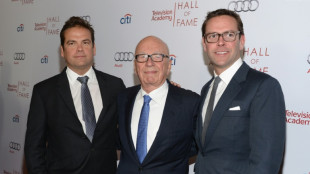
-
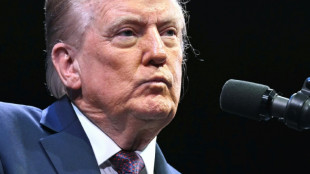 Trump's alleged birthday note to Epstein released by House panel
Trump's alleged birthday note to Epstein released by House panel
-
Killing Hong Kong's Lai would strengthen democracy message, son says
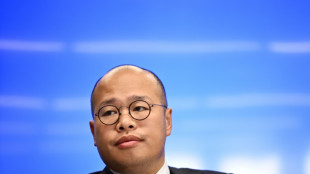
-
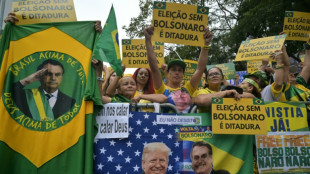 D-Day approaches in Bolsonaro coup trial
D-Day approaches in Bolsonaro coup trial
-
Israel film at Toronto fest entrenches industry split over Gaza
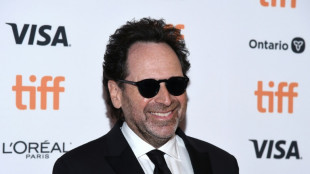
-
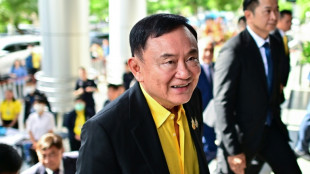 Thai top court to rule on ex-PM Thaksin's prison stay
Thai top court to rule on ex-PM Thaksin's prison stay
-
North Korea's Kim oversees ICBM engine test: state media
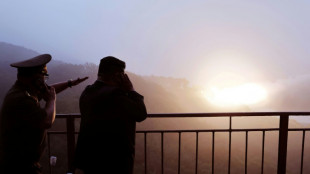
-
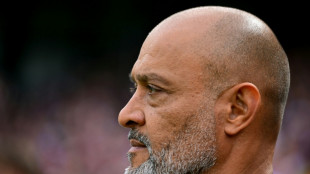 Nottingham Forest sack boss Nuno Espirito Santo
Nottingham Forest sack boss Nuno Espirito Santo
-
Elevating Imaging, Empowering Flow - AGFA HealthCare at RSNA 2025

-
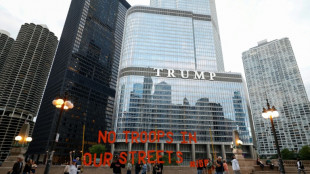 Trump admin launches immigration raids in Chicago
Trump admin launches immigration raids in Chicago
-
Murdoch family settles dispute on control of media assets
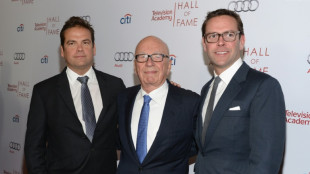

Hong Kong artists mark Tiananmen quietly or overseas
Avant garde street performance, politically charged theatre, pro-democracy music and poetry -- powerful works of art dealing with China's bloody Tiananmen Square crackdown that were once commonplace in Hong Kong have all but disappeared in recent years.
For decades, tens of thousands of people gathered annually in Hong Kong's Victoria Park for a candlelight vigil marking June 4, 1989, when Chinese troops moved into Beijing's Tiananmen Square to quell peaceful protests calling for reforms.
Hundreds, by some estimates more than 1,000, were killed in the crackdown.
Any mention of the day -- let alone commemoration -- has long been forbidden in mainland China, but the massive turnout every year in Victoria Park stood as an enduring symbol of the special freedoms Hong Kong enjoyed, even after its return to Chinese rule.
But since Beijing imposed a national security law on the city in 2020 to quash dissent, authorities have suppressed public events mourning the Tiananmen crackdown, and artistic output commemorating the pivotal day has shrivelled.
Hong Kong artist Luk Ming remembers how more than a dozen people took part in interpretive performances in the bustling district of Causeway Bay on the anniversary's eve in 2009.
"The performers were not artists, but the everyman -- there was a taxi driver, a teacher, and so on," Luk told AFP, using a pseudonym due to fear of repercussions.
As part of the "Our Generation's June 4" art project, some performers had covered their bodies with yellow paint -- a colour associated with the city's pro-democracy camp -- as a representation of "freedom and hope", Luk said.
"People were proactive then... with many trying to tell others about the crackdown lest we forget."
Though a few hardcore artists might try to sustain the tradition, he added, "will they continue to put it out there under so much uncertainty?"
Just last year, on the day before the anniversary, artist Chan Mei-tung was bundled into a police van mid-performance for "misconduct in public places" and detained overnight.
The offending piece had seen her whittle a potato into the shape of a candle -- once distributed by the thousands at the annual Tiananmen vigil -- and hold a lighter to it.
- 'Safeguard a memory' -
In 2019, Hong Kong was rocked by massive, and at times violent, protests over an unpopular bill that morphed into a months-long movement calling for broader democratic change.
The ensuing crackdown saw more than 10,000 people arrested, though more than 6,000 have yet to be formally charged.
Meanwhile, three organisers of the annual Tiananmen vigil have been charged with "incitement to subversion" under the national security law -- an offence punishable by up to 10 years in prison.
There has also been what amounts to an erasure of Hong Kong's public memorials to Tiananmen: a museum run by the vigil's organisers was shuttered, monuments were removed from universities and dozens of books about the 1989 crackdown were pulled from libraries.
For the fourth year running, June 4 is expected to be a neutered affair.
City leader John Lee has issued vague warnings that "any act that is in breach of the law" will see police enforcement.
Given the climate in Hong Kong, some artists have transplanted their works to more receptive soil.
For the past three years, Lenny Kwok, a Hong Kong musician who has organised commemorative concerts since 1990, has hosted an operetta marking the anniversary in Taiwan.
A mixture of music, poetry and storytelling, the show will open this year in a Taipei park with the reading of a poem by Nobel laureate Nelly Sachs, who fled Nazi rule during World War II.
"All the nations are ready to rise up from the map," the poem begins.
Kwok said he believes the desire for freedom and democracy in both Hong Kong and Taiwan is closely connected to the Tiananmen incident.
"We are here to safeguard a memory that is being gradually erased, rewritten and re-interpreted," he said.
- 'Connect with art' -
Taiwan will also see a performance of "35th of May", a stage drama by Hong Kong playwright Candace Chong, on the anniversary weekend.
The play -- its name a coded reference to June 4, mentions of which are censored on the mainland -- follows an elderly couple's decision to openly mourn their son who died in Tiananmen Square after decades of grieving silently.
It debuted in Hong Kong in 2019, but the troupe that originally produced it, Stage 64, disbanded two years later.
Stage 64's founder Lit Ming-wai translated the script from Cantonese -- Hong Kong's native tongue -- into Mandarin and English for Taiwanese audiences.
She told AFP she still felt the "boundaryless power" of Hong Kong's security law, even when publishing the script in Taiwan.
For example, the play's original tagline -- "Unveil the memories once displaced; confront the abnormal red line" -- was changed due to legal concerns from the publishing house.
It is now "On the 35th of May, let's meet in the open".
The six showings have been booked out by more than 1,000 people.
Taiwanese director Chung Po-yuan said he hoped the play would push the audience to reflect on the island's authoritarian past, while thinking about their future in the face of China's claim over the self-ruled democracy.
"If we lose our guard, it may recur in the future," Chung said.
K.Thomson--BTB

